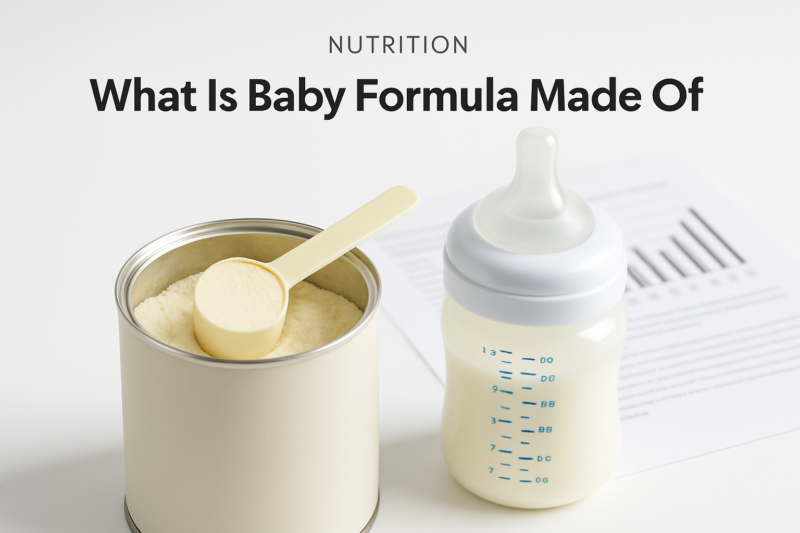
Baby formula is like a precious elixir, carefully crafted to provide babies with the essential nutrients needed for their development. It is made from a blend of proteins, carbohydrates, fats, vitamins and minerals that are tailored to meet the nutritional needs of infants.
Formula plays an important role in providing adequate nutrition for growing bodies during this critical period of life. Proteins form the backbone of baby formulas as they supply amino acids which are vital for building new cells and tissues. Carbohydrates offer energy sources while various types of fatty acids aid in brain growth and cognitive function. Vitamins and minerals help prevent deficiencies that can cause serious health problems later on in life.
Types Of Baby Formula
Baby formula is a type of food made specifically for infants and young children. It offers nutrition similar to that found in breast milk, but it’s not the same as natural breastfeeding. Baby formula typically contains proteins, carbohydrates, fats, vitamins, minerals, and other nutrients necessary for growth and development.
There are several types of baby formulas available on the market today:
- Cow’s Milk Formula – This is the most common type of baby formula and usually has cow’s milk as its primary ingredient. It also includes added oils, sugars, vitamins and minerals to provide complete nutrition for your infant.
- Soy-Based Formulas – These formulas use soy protein instead of cow’s milk protein as their main source of nutrition. They are an excellent choice for lactose intolerant babies or those with allergies to dairy products.
- Hypoallergenic Formulas – These formulas have extensively hydrolyzed whey or casein proteins which have been broken down into smaller fragments so they don’t cause allergic reactions like cows’ milk can.
- Specialty Formulas – There are many specialty formulas available including organic options or ones designed for premature babies or those with specific medical conditions such as reflux or digestive problems.
No matter what type you choose, be sure to read all labels carefully to ensure you are providing your child with proper nourishment and meeting his/her individual nutritional needs.
Ingredients In Different Formulas
Baby formula is a manufactured food designed to provide infants with the essential nutrients they need for growth and development. There are many types of baby formulas available, but all formulations contain certain core ingredients. An understanding of these components can help parents make informed decisions when selecting the right formula for their child.
The primary ingredient in most infant formulas is cow’s milk or soy protein isolate. Milk proteins provide important amino acids that are necessary for building muscle tissue and other body tissues, while also providing energy. Cow’s milk also contains lactose, which provides carbohydrates as an additional source of energy. Soy protein isolate is often used as an alternative to cow’s milk due to its hypoallergenic properties; however, it does not provide the same amounts of essential fatty acids found in cow’s milk-based products.
In addition to proteins from either animal sources or plant sources, baby formulas may also include vegetable oils such as palm oil and coconut oil. These provide essential fatty acids, including linoleic acid (omega 6) and alpha-linolenic acid (omega 3). Other common ingredients in infant formulas include minerals like calcium carbonate and magnesium citrate, vitamins like A, B12, C and D3, choline chloride and taurine – all vital nutrients required during infancy. Formulas may also contain corn syrup solids as a sweetener or prebiotics to promote gut health. Ultimately, each type of formula has been carefully tailored by manufacturers based on decades of research into specific nutrient needs at different stages of life.
Benefits Of Using Formula
Using formula to feed your baby is like taking a road map on a journey. You know you will arrive at the destination, but how you get there is entirely up to you. Formula provides parents with an abundance of options and flexibility when it comes to feeding their infants.
| Benefits | Disadvantages |
|---|---|
| Easier for travel and storage than breastmilk | More expensive than breastfeeding |
| Flexibility in timing of feeds | Less nutritious than breast milk due to lack of antibodies and enzymes from mother’s body |
| Can be used as supplement or replacement for breastfeeding if necessary | Not natural and may contain artificial ingredients that can cause digestive issues for some babies |
From a nutrition standpoint, infant formula can provide essential nutrients needed for healthy growth and development in newborns. It contains vitamins, minerals, proteins, carbohydrates, fats, fiber which are all important components of an infant’s diet. Additionally, since the amount of each nutrient is carefully measured out by food scientists according to industry standards, parents have peace of mind knowing they are providing optimal nourishment for their child without having to worry about measuring themselves. Ultimately, using formula allows parents more control over what goes into their baby’s body while offering convenience that many times outweighs any drawbacks associated with its use.
Tips For Choosing The Right Formula
The benefits of using formula are clear, but choosing the right one for your baby can be a daunting task. When selecting the best product for your child’s needs, there are several factors to consider.
Baby formula is typically made up of cow’s milk that has been modified with nutrients such as vitamins and minerals. The proteins in this mixture have also been broken down into smaller components, making them easier to digest. Depending on the type of formula chosen, there may also be additional ingredients such as vegetable oils added to provide extra nutrition or prebiotics and probiotics designed to promote healthy gut bacteria. It is important to read the label carefully when selecting a formula so you know exactly what you are feeding your little one.
Different formulas come with varying levels of lactose content which will affect how easy it is for babies to digest. Low-lactose formulas are often recommended for infants who experience gas or digestive discomfort after drinking regular milk-based formulas. Soy-based products are another option if parents wish their baby to avoid dairy altogether and some formulas contain specialized ingredients like DHA (omega 3) or ARA (omega 6), which support brain development during infancy and early childhood.
It is always advised that you consult with your doctor before deciding on any specific formula brand or type, especially if your infant has special dietary requirements due to allergies or other health concerns. Additionally, look out for signs that something isn’t agreeing with your baby such as fussiness soon after feeding or changes in stool consistency/frequency; these could indicate an intolerance and require further investigation by a medical professional. Ultimately, selecting the right formula will ensure that your baby gets all the essential nutrients they need while providing maximum comfort throughout feedings!
Nutritional Content Of Formula
Baby formula is a highly regulated food that provides essential nutrients for infants and toddlers. Nutrients in the formula must be balanced to meet the nutritional needs of growing babies. Here’s what you need to know about the key components:
- Carbohydrates – Most baby formulas use lactose, which comes from cow’s milk or soybeans as their main carbohydrate source.
- Fats – Formula typically contains vegetable oils such as palm olein oil, coconut oil, soya bean oil, and canola oil which provide beneficial fatty acids like omega-3s and 6s.
- Protein – Depending on the type of formula, protein sources may come from either cow’s milk whey and casein or plant proteins like soy isolate.
In addition to these core ingredients, many formulas also contain vitamins and minerals to ensure your baby receives all the nutrition they need during early development stages. The exact amounts vary between brands but should always adhere to regulations set out by governing bodies like Health Canada and the U.S Food & Drug Administration (FDA). Taking into account all these factors ensures parents have an appropriate choice when selecting a suitable formula for their child.
Preparation And Storage Guidelines
Baby formula is composed of a variety of ingredients, including proteins, fats, carbohydrates and vitamins. It must be prepared according to the instructions on the label for it to provide complete nutrition. Preparation and storage guidelines should always be followed when using baby formula.
| Ingredient | Amount |
|---|---|
| Proteins | 20-30% |
| Fats | 28-40% |
| Carbohydrates | 40-55% |
| Vitamins | A, D, E & K |
When preparing formula, it is important to follow the specific directions printed on the product’s packaging. The right amount of water needs to be added in order for the infant to obtain adequate hydration while consuming enough calories from the formula itself. Formula should never be microwaved as this can cause hot spots that can burn an infant’s mouth or throat. After preparation, store any unused portion of a bottle at room temperature for no more than two hours or in a refrigerator for up to 48 hours; discard formulas if not used within these time frames. Refrigerated formulas should also be warmed prior to use by placing them in warm water rather than microwaving them. When feeding infants with formula stored in bottles, parents and caregivers should throw away any unfinished portions after each feeding session so bacteria cannot form inside those containers over time. Following these guidelines helps ensure that your baby will receive balanced meals and remain safe during feedings.
Pros And Cons Of Using Formula
With the preparation and storage guidelines discussed, it is now time to look at the pros and cons of using formula. According to statistics, 95 percent of infant formulas are based on either cow’s milk or soy protein. This makes them a viable alternative for parents who cannot breastfeed their baby or who have chosen not to breastfeed.
The primary benefit of using baby formula is that it provides all the essential nutrients needed for healthy growth in infants. The iron content helps with cognitive development while protein and calcium promote bone health and muscle growth. Formula can also help reduce colic symptoms as well as gas buildup in babies due to its easily digestible ingredients. It gives parents peace of mind knowing that their child is receiving adequate nutrition even when breastfeeding isn’t an option.
On the other hand, there are potential risks associated with using formula as well. Although many brands are made from natural ingredients, some contain synthetic additives such as preservatives which could cause sensitivities or irritate a baby’s delicate digestive tract. Additionally, if stored incorrectly by not following proper guidelines, bacteria can develop inside the container leading to contamination. Finally, bottle-feeding has been linked to increased risk for obesity since formula-fed babies tend to gain weight faster than those fed naturally through breastfeeding alone.
To sum up, while there are advantages and disadvantages to using baby formula, understanding both sides will enable parents make more informed decisions about what works best for their family situation.
Alternatives To Baby Formula
Baby formula is typically made up of cow’s milk, vegetable oils, lactose and other ingredients that are designed to provide the essential nutrients for infants. However, there are alternatives available if a parent wishes to avoid using traditional baby formula. These could include breastmilk or donor human milk, as well as plant-based milks such as soy, coconut and almond milks.
Whichever option they choose, it is important that parents ensure their child receives all the required vitamins and minerals by supplementing with additional foods or supplements where necessary – either in liquid form (for example fortified rice drinks) or through solid food once the infant reaches 6 months old. It’s also vital to check any non-dairy options meet regulatory standards for babies under 12 months old; some varieties are not recommended due to higher sugar content. Ultimately, whatever feeding plan parents select should be tailored specifically towards their individual baby’s needs.
Advantages And Disadvantages Of Breastfeeding Vs Bottle Feeding
Moving on from alternatives to baby formula, let us consider the advantages and disadvantages of breastfeeding versus bottle feeding. Breastfeeding is the most natural form of infant nutrition; it provides essential nutrients, antibodies, vitamins and minerals that are important for a newborn’s development. It also helps foster an emotional bond between mother and child. However, there can be some challenges associated with this method such as difficulty in latching, inadequate milk supply or painful nipples which may require medical assistance.
Bottle-feeding requires preparation before each feed but does allow flexibility when it comes to sharing responsibilities with other caregivers. Formula milk is designed to mimic breastmilk in terms of nutritional content so it ensures that babies get all necessary nutrients for growth and development. Although generally safe if prepared correctly according to manufacturer instructions, formulas may contain ingredients not present in breastmilk which could cause allergies or sensitivities in some infants. Additionally, since artificial feeding lacks the bonding benefits of breastfeeding, parents must take extra care to ensure they provide enough physical contact during feeds.
In summary then, when making decisions about how best to feed an infant, one should consider both the practical implications as well as potential health benefits associated with either option. While no single choice will suit every family’s needs perfectly, understanding the pros and cons of each approach can help parents make informed decisions regarding their child’s wellbeing.
Safety And Sanitation Measures To Consider When Making Homemade Formulas
As the proverb goes, “An ounce of prevention is worth a pound of cure.” When it comes to preparing homemade formula for your baby, it is essential that you take all necessary safety and sanitation measures. Here are three key points to consider:
- Ensure That Ingredients Are Safe – All ingredients used in making the formula should be fresh and safe for consumption by infants. The water must also be boiled before use. If using raw eggs or dairy products, make sure they have not expired as spoiled foods can cause serious health issues in babies.
- Clean utensils Properly – It’s important to sterilize any equipment such as bottles and lids, spoons, or measuring cups with boiling water prior to use when making formulas at home. Make sure that the dishes are washed thoroughly with hot soapy water after every use and dried well before storage.
- Store Formula Appropriately – Freshly made infant formulas should be consumed immediately but can be stored safely in the refrigerator for up to 24 hours if needed. Store unused portions properly in an airtight container away from direct sunlight or heat sources to avoid spoilage or contamination from outside sources like insects or dust particles.
These basic steps will help ensure a safe preparation of homemade formula that meets all nutrition requirements while protecting your baby’s health and wellbeing
Effects On Babies’ Health
Now that we have discussed the safety and sanitation measures to consider when making homemade formulas, let’s take a look at how baby formula can affect a baby’s health.
Baby formula is typically made with cow’s milk or soy as its base, but it also contains essential vitamins and minerals such as iron and calcium. It also includes fatty acids like omega-3 which are beneficial for brain development in infants. Additionally, some manufacturers add probiotics and prebiotics to provide additional nutrition. The following table outlines the main ingredients used in most commercial infant formulas:
| Main Ingredient | Benefit |
|---|---|
| Cow’s Milk/Soy Protein Isolate | Provides protein needed for growth & repair of body tissues |
| Vitamin A&D | Supports healthy vision & immune system function |
| Fats (Palm Olein Oil) | Essential fatty acids contribute to cell membrane formation & energy production |
| Carbohydrates (Lactose) | Provide fuel for growth & development |
| Iron Sulfate | Necessary component of hemoglobin; helps transport oxygen throughout the body |
| Calcium Carbonate | Helps form strong bones & teeth; assists in muscle contraction & nerve impulse transmission |
Formulas fortified with these nutrients provide babies with an adequate supply of all the necessary components they need during their first year of life. This makes them a suitable alternative to breastmilk if breastfeeding isn’t possible. However, unlike breastmilk, there is no natural immunity provided by formula so parents should be sure to keep up on vaccinations while using it.
In addition to providing nutritional benefits, research suggests that introducing solids earlier may help reduce food allergies later in life compared with waiting until six months. Therefore, along with consulting healthcare providers about transitioning from formula to solid foods starting around four months old may be worth considering for many families.
By understanding what goes into baby formula and being aware of potential effects on health due to early introduction of solids, parents can make informed decisions about feeding options for their children that best suits their family needs.
Cost Considerations For Different Types Of Baby Formulas
It is natural for parents to be concerned with how much it will cost them to provide their baby with the nutrition they need. The truth is, when it comes to infant formula, there are many options that come in different price ranges. As a food scientist and nutritionist, I am here to help you navigate through these varied choices so that you can find one that best fits your budget while still providing your baby with the healthy nutrients they need.
Here’s four things to consider before choosing a type of baby formula:
- Organic vs non-organic: organic formulas may have higher prices but contain fewer synthetic ingredients than conventional options.
- Ready-to-feed vs powdered milk: ready-to-feed formulas tend to be more expensive than powder formulas due to packaging and convenience costs.
- Cow’s milk vs plant-based milk: cow’s milk based formulas are usually less expensive than plant-based alternatives as they require fewer processing steps.
- Specialty/prescription formulas: specialty or prescription formulas are specifically designed for babies who cannot tolerate regular commercial formulations; however, these types of products typically carry a steep price tag due to their special formulation and production processes.
No matter what kind of formula you choose for your child, make sure that it meets all safety standards and provides ample nutrition so that your little one grows up strong and healthy!
Common Concerns About Using Store-Bought Formulas
Transitioning from the cost considerations for different types of baby formulas, it is important to consider some common concerns about using store-bought formula. Many parents worry about what ingredients are in these formulas and whether or not they are safe for their babies.
Baby formula is typically made with cow’s milk, vegetable oils, lactose (a sugar found in dairy), whey protein concentrate from cow’s milk, and other nutrients such as vitamins A, C and D. The FDA has strict regulations that manufacturers must follow to ensure safety and quality when preparing infant formula. All commercial infant formulas contain a mix of proteins and carbohydrates that can be easily digested by infants who lack the enzymes necessary to break down regular cows’ milk proteins. They also include essential fatty acids like docosahexaenoic acid (DHA) and arachidonic acid (ARA), which are important for healthy brain development. Additionally, most formulas now come fortified with iron to help prevent anemia in growing babies.
It should be noted then that despite the presence of additives and preservatives in store-bought formulations, there is no scientific evidence linking them to any health issues for babies who consume them appropriately under parental supervision. As long as you choose a nutritious brand based on your needs and preferences, rest assured that store-bought baby formula will provide your little one with all the nutrition he or she requires during this crucial time of growth and development.
Advice From Healthcare Professionals
Baby formula is a carefully crafted combination of vital ingredients that are essential for the growth and development of infants. Healthcare professionals highly recommend parents to feed their babies with baby formula, as it contains all the necessary nutrients that an infant needs.
To start off, lactose – a type of sugar found in cow’s milk – serves as a primary energy source for babies, along with other carbohydrates like corn syrup solids or sucrose. In addition to providing energy, these sugars provide sweetness which helps baby’s transition from breastmilk or formula to solid foods more easily. Protein sources such as whey protein concentrate (WPC) and casein hydrolysate also play important roles in formula production and help support healthy muscle and brain development. Healthy fats including vegetable oils are added to formulas to provide key fatty acids, while vitamins and minerals ensure proper nutrition throughout infancy.
With its balanced blend of macronutrients and micronutrients, baby formula is a great way to give your child the nutritional foundation they need without compromising on taste or quality. It provides peace-of-mind knowing that you are giving them the best possible care during this crucial stage of life!
Conclusion
In conclusion, baby formula is a very important nutritional decision for parents and their little ones. It’s essential for parents to learn about the different types of formulas available so that they can make an informed choice tailored to their individual needs and lifestyle. With all the options out there, it can be overwhelming at times. But with knowledge comes power, and it’s worth taking the time to understand what goes into each type of formula in order to select one that best provides the nutrition your baby requires.
Think of this process like creating a recipe; you have many ingredients on hand but you must choose which combination will produce the most delicious outcome—in this case, optimal health for your child! As long as you are well-informed regarding the ingredients present in various baby formulas, take into account any potential allergies or sensitivities, factor in budget constraints if need be, and consult your healthcare provider along the way – then you should feel confident enough when making decisions pertinent to nourishing your little one.
When considering nutrition for babies, remember that feeding them healthy food early on not only affects their physical development today but also sets them up for healthier habits down the road. So let’s work together now to ensure our children get off on the right foot nutritionally!
Frequently Asked Questions:
What are the main types of baby formula available?
The main types of baby formula include Cow's Milk Formula, Soy-Based Formulas, Hypoallergenic Formulas, and Specialty Formulas designed for specific needs like premature babies or digestive issues.
What are the core ingredients in baby formula?
Baby formula typically contains proteins (from cow’s milk or soy), carbohydrates (like lactose), fats (such as vegetable oils), and essential vitamins and minerals to support infant growth and development.
What are the benefits of using baby formula?
Baby formula provides flexibility in feeding, ensures consistent nutrition, and is easier for travel and storage. It also allows parents to share feeding responsibilities and can be a supplement or alternative to breastfeeding.
How should baby formula be prepared and stored?
Formula should be prepared according to the label instructions, using boiled water. Unused portions can be stored at room temperature for up to 2 hours or refrigerated for up to 48 hours. Always discard unfinished formula after feeding.
What should parents consider when choosing a baby formula?
Parents should consider their baby's dietary needs (e.g., lactose intolerance or allergies), nutritional content, cost, and whether the formula meets safety standards. Consulting a healthcare provider is also recommended.


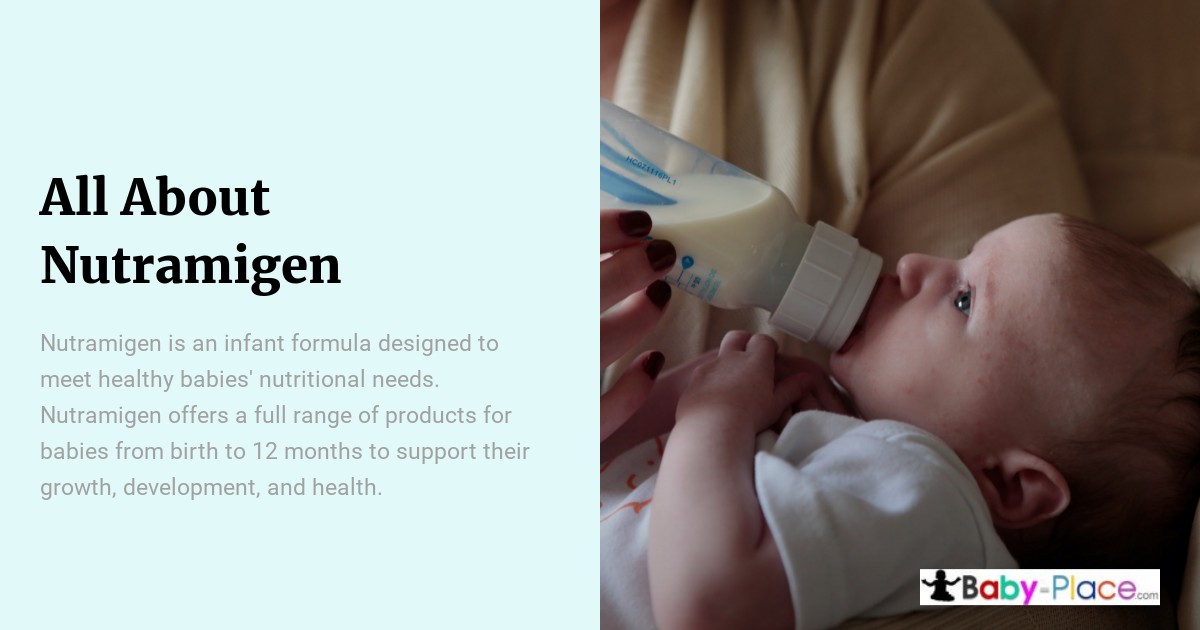
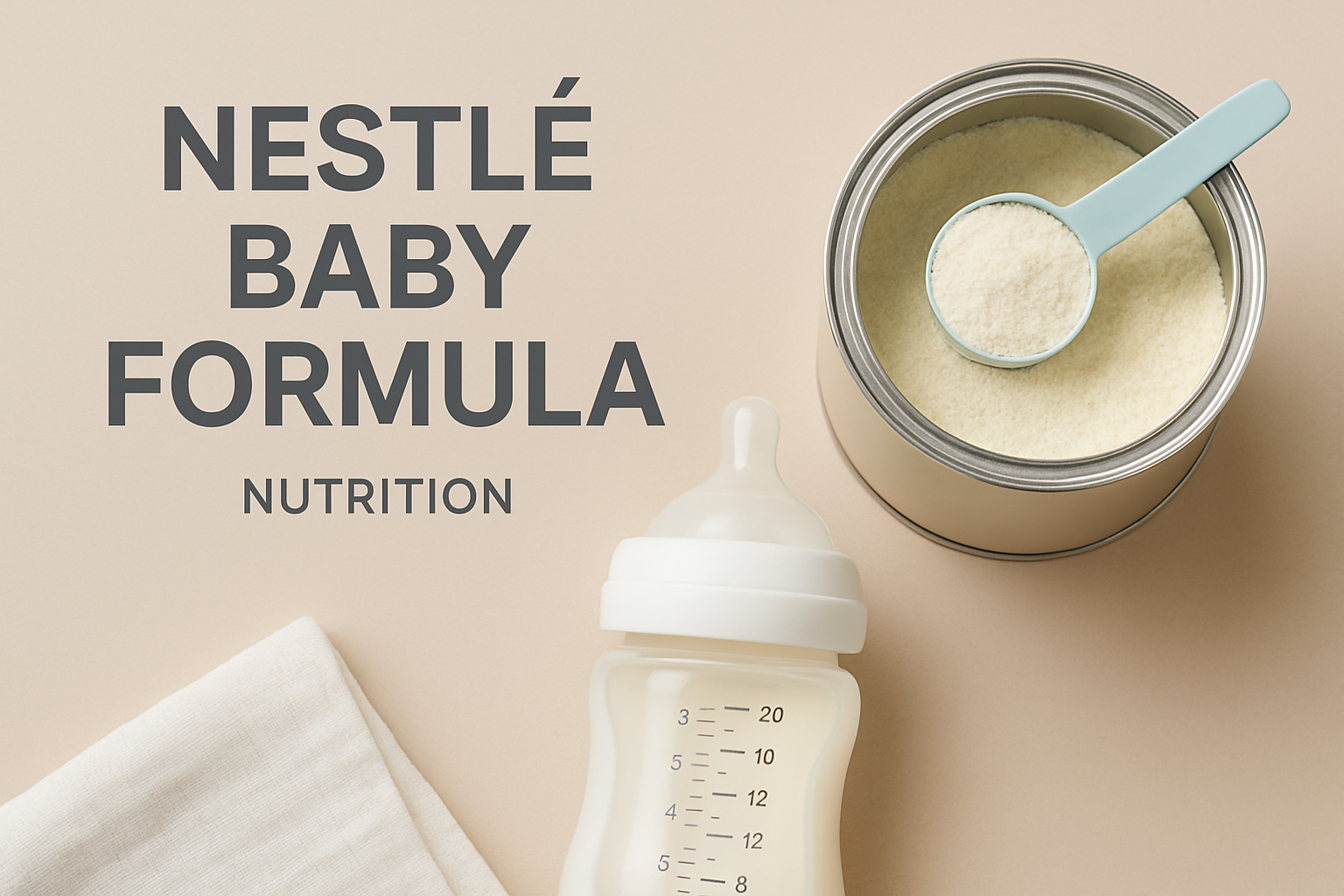
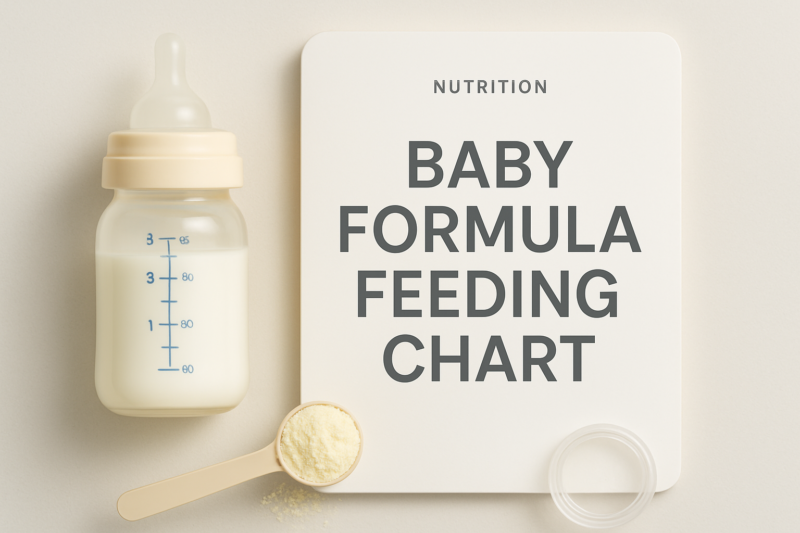
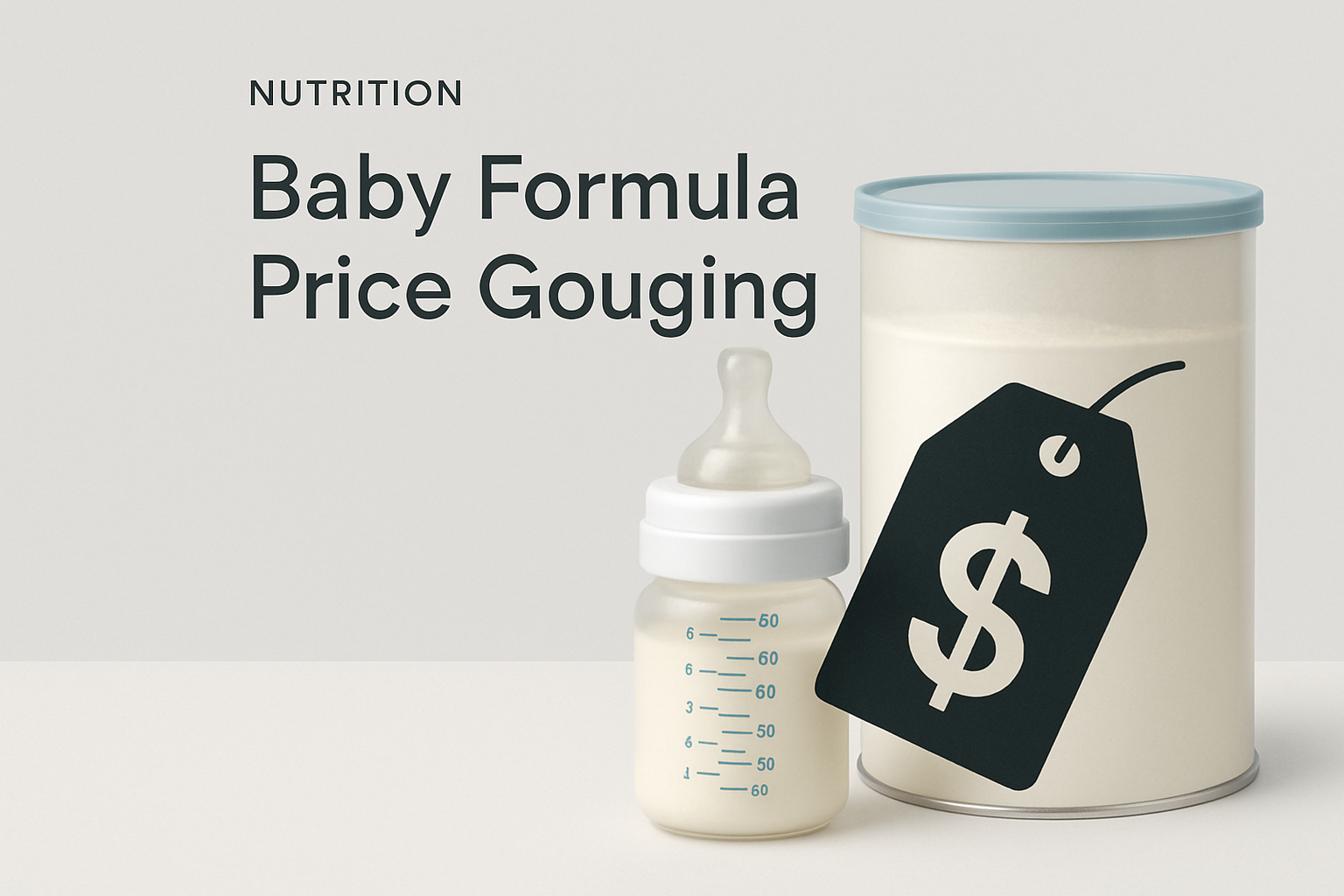

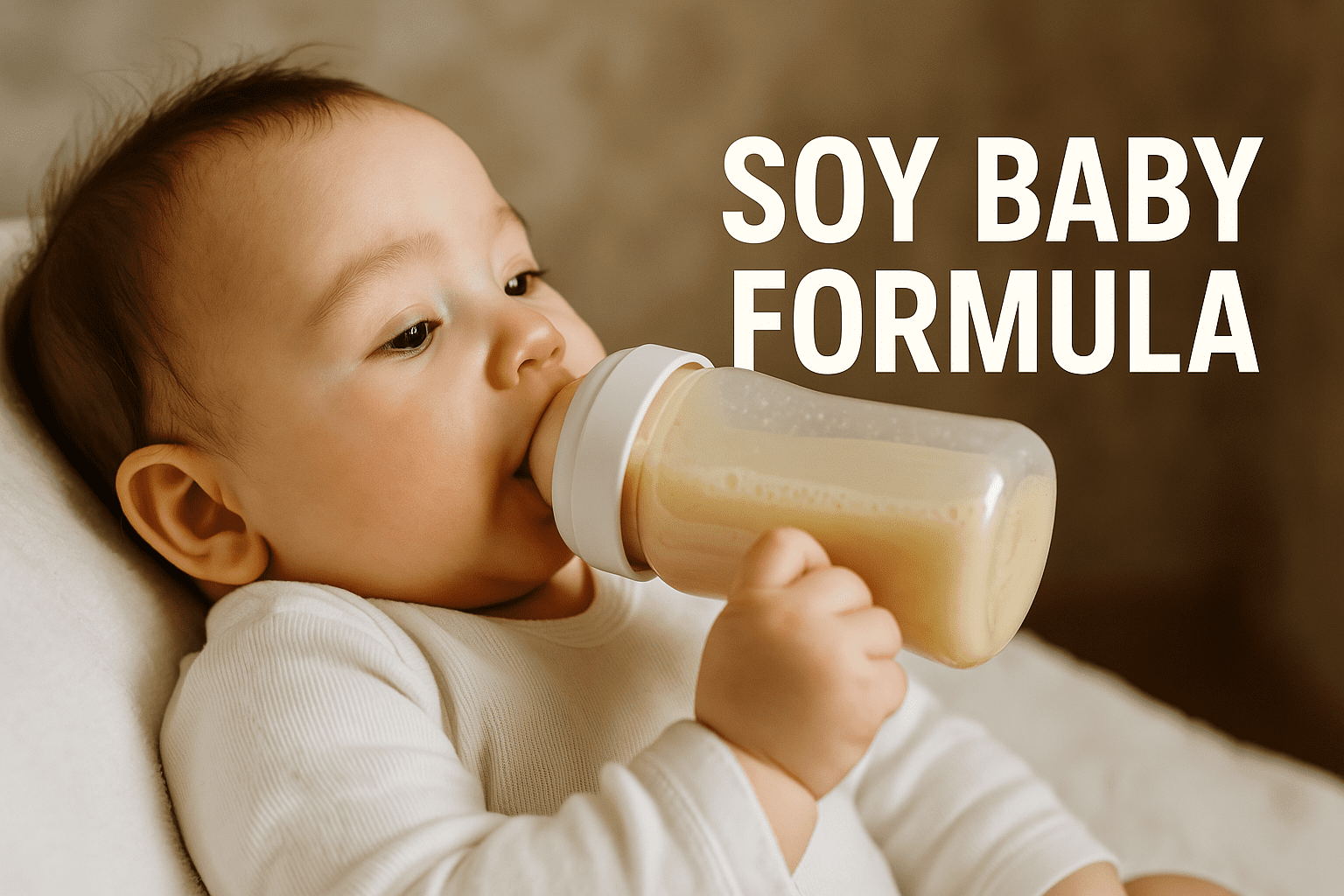


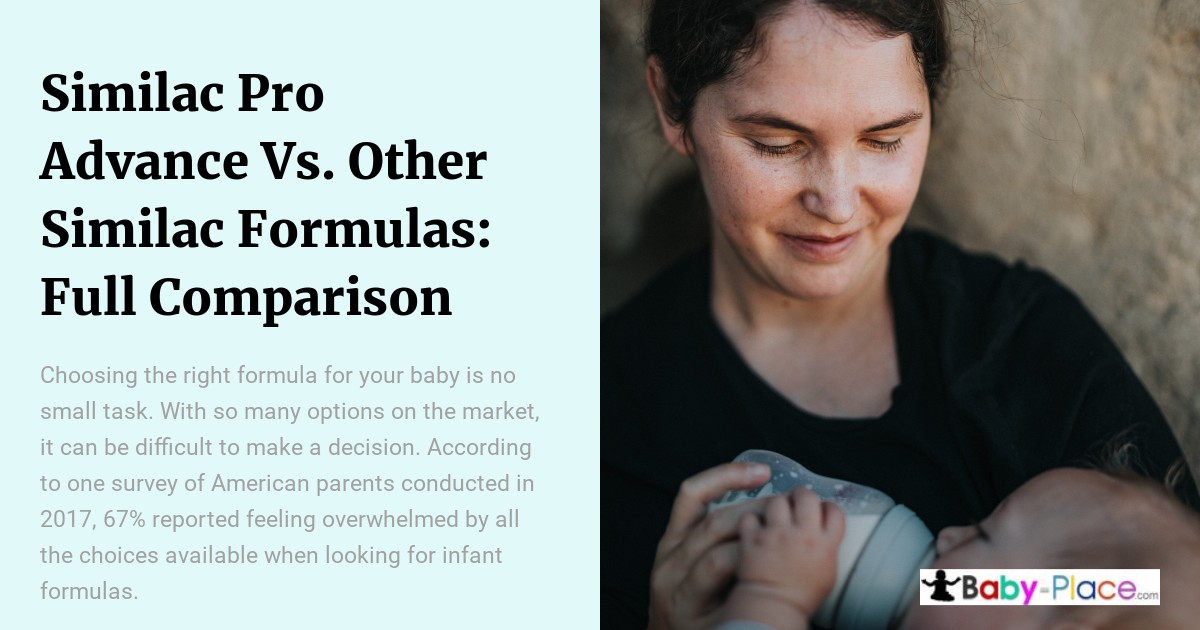
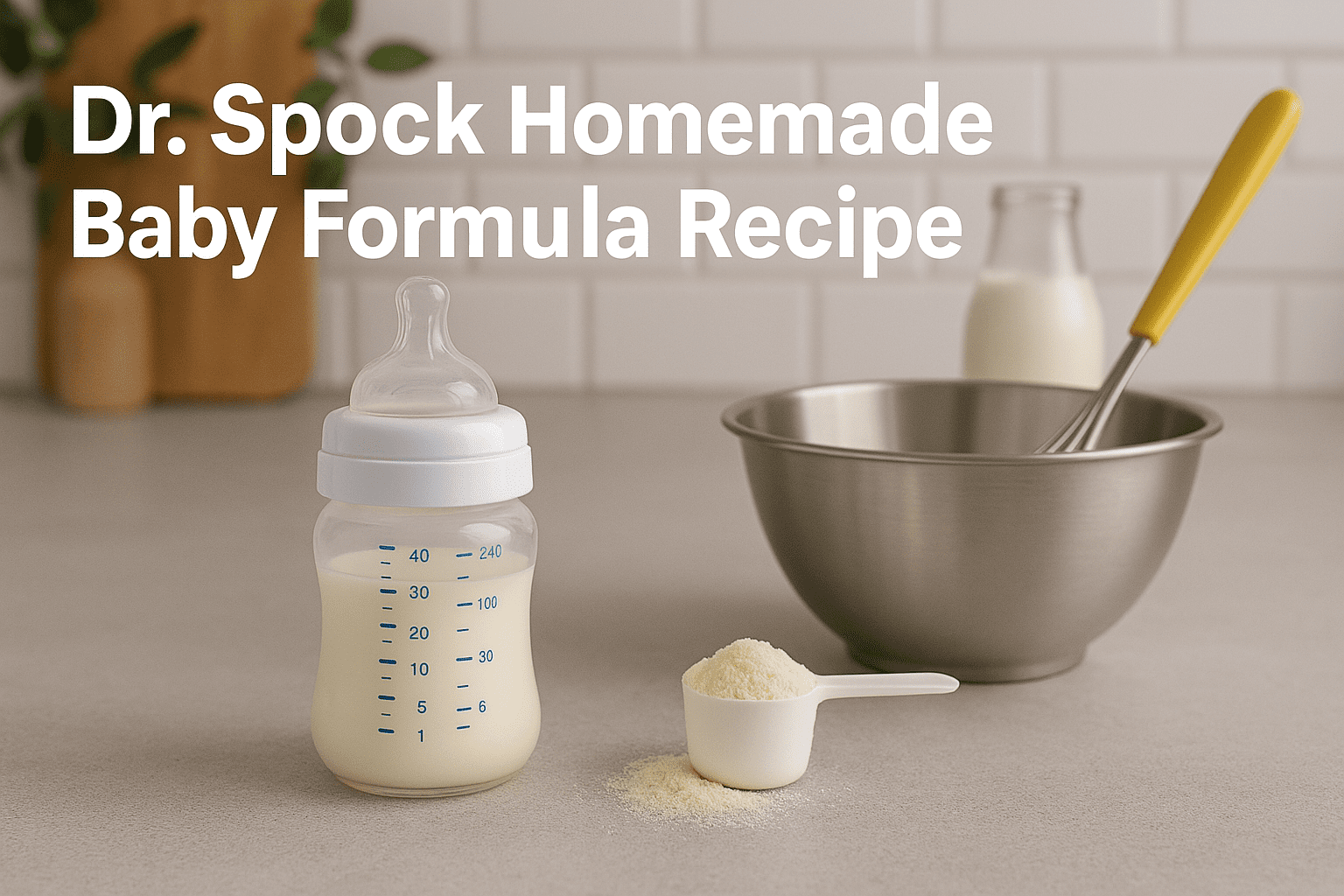
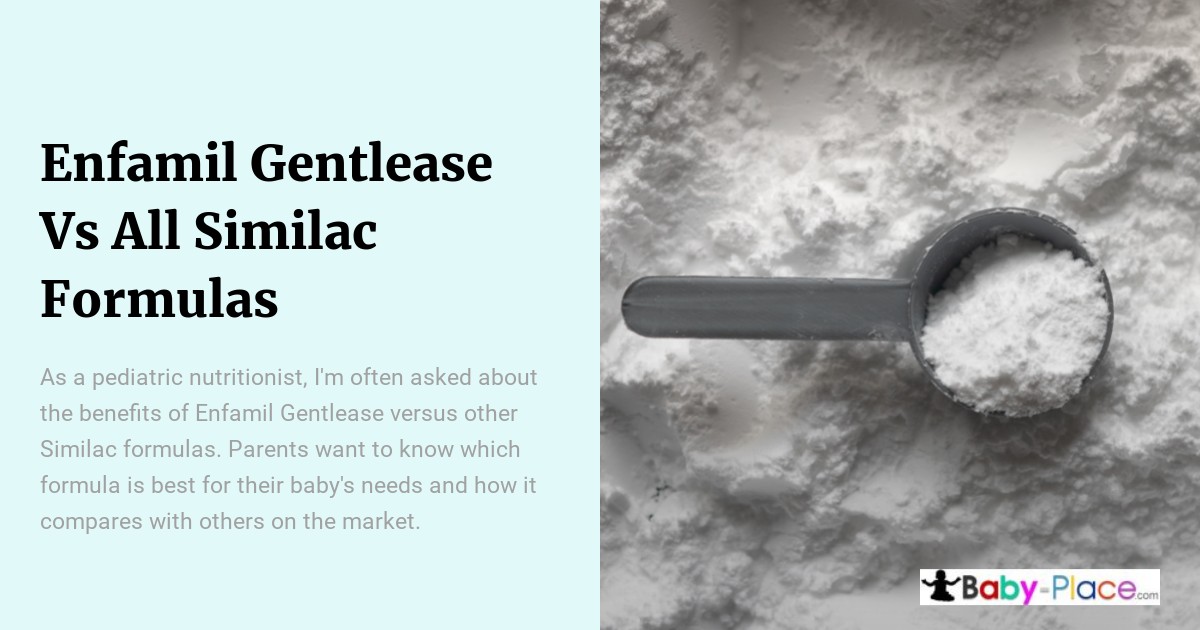





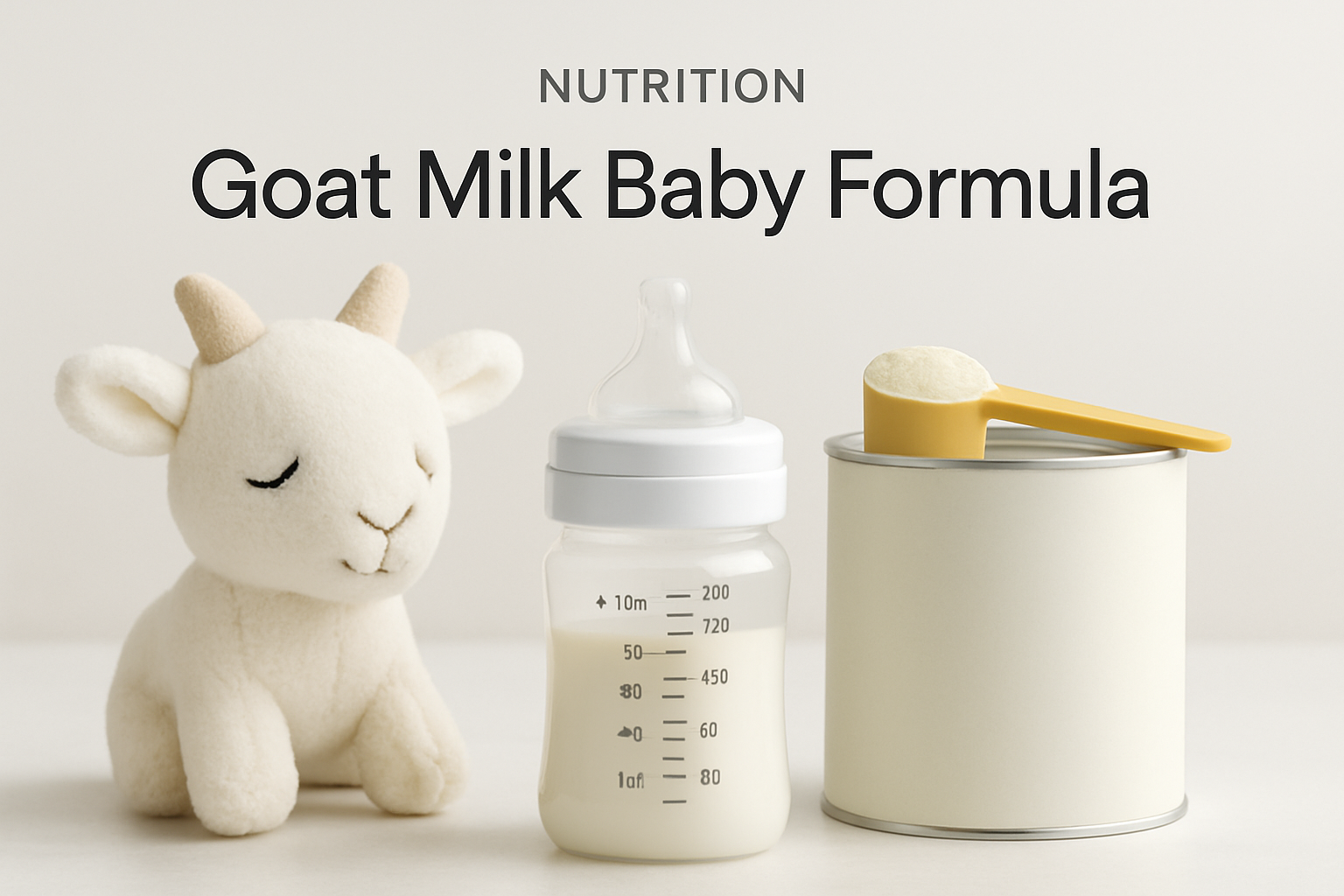
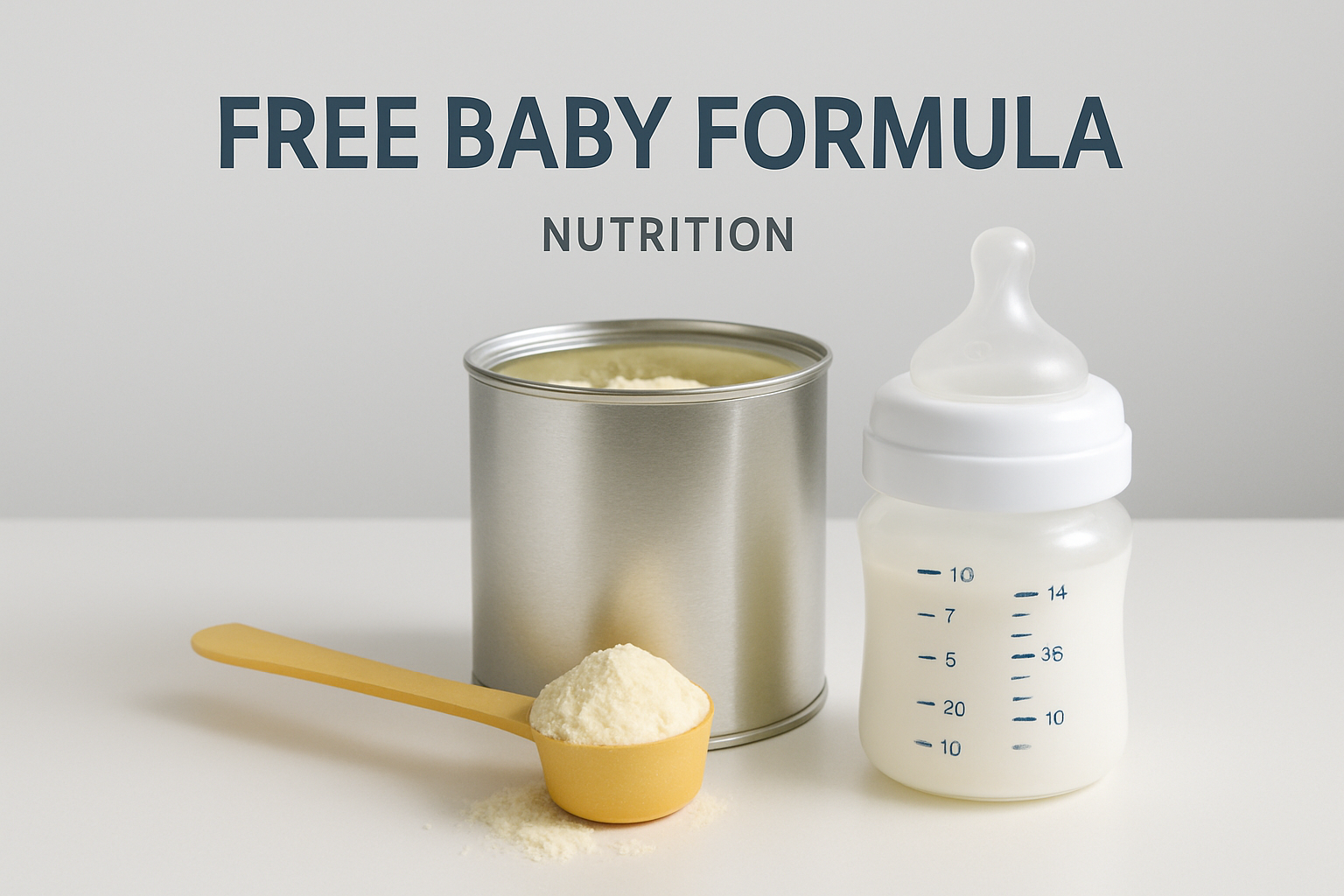
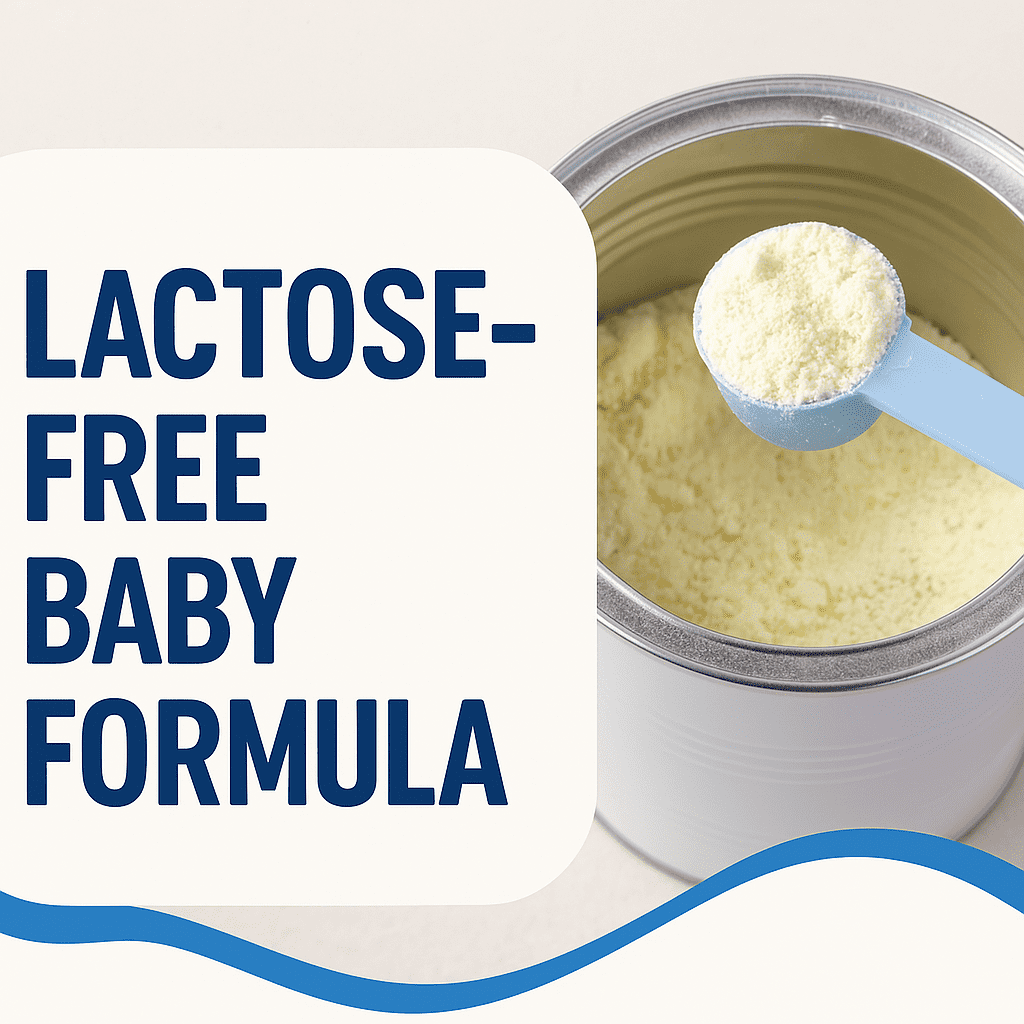



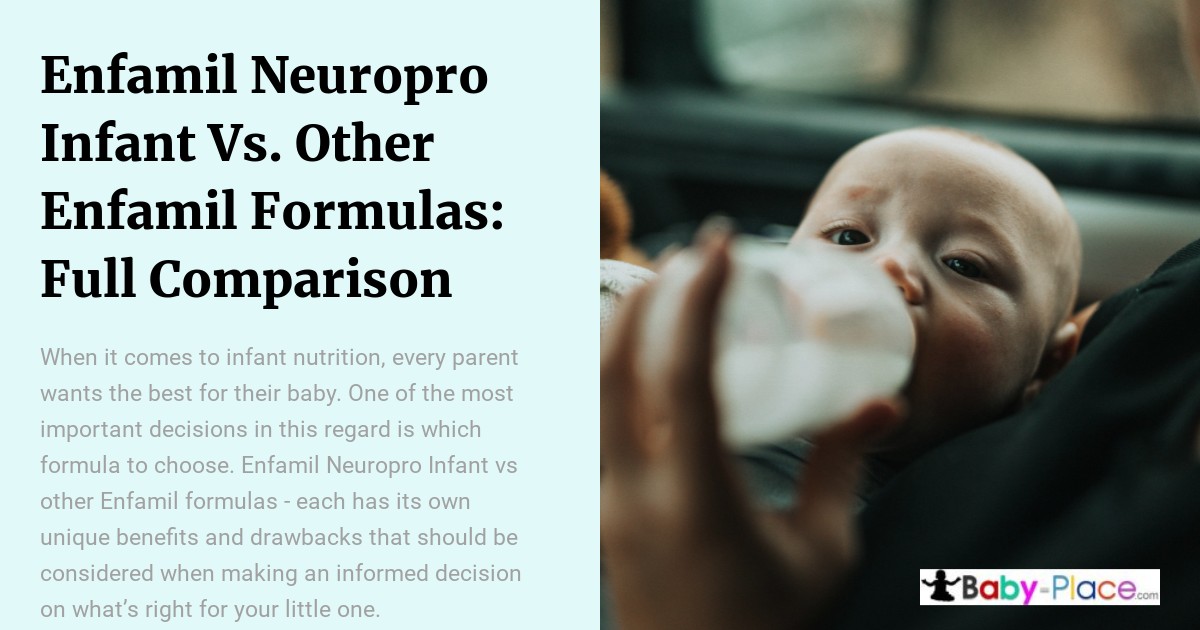
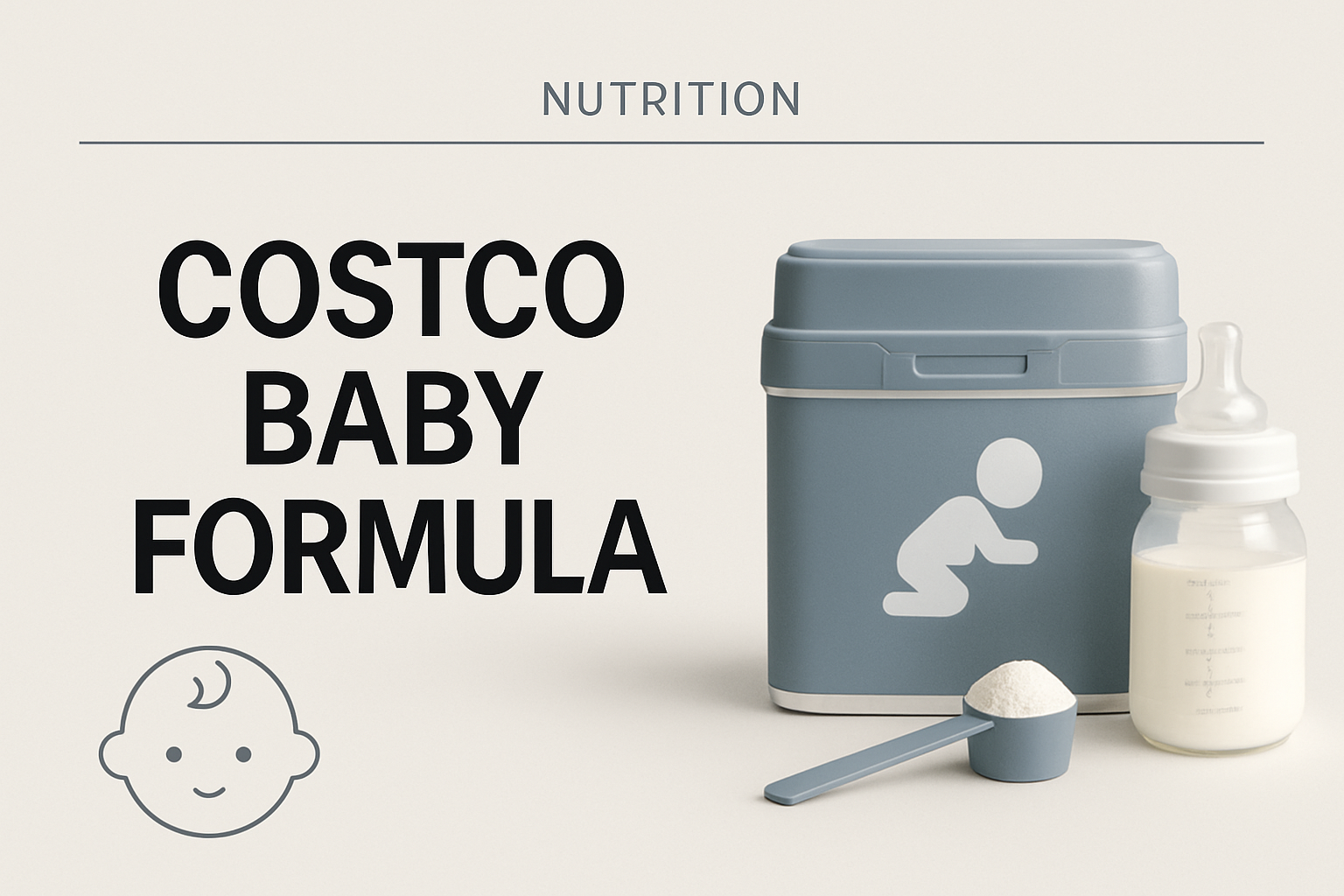

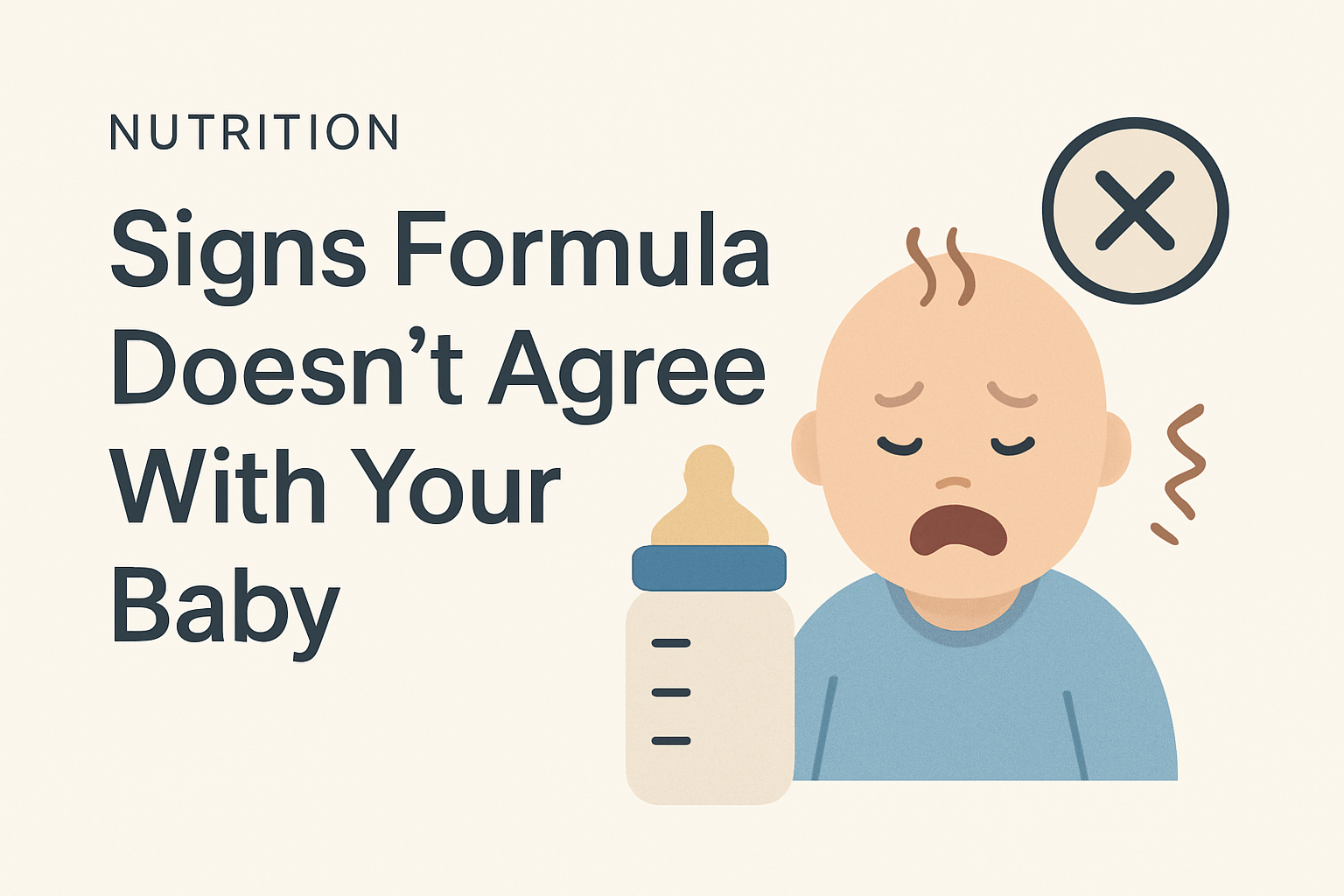
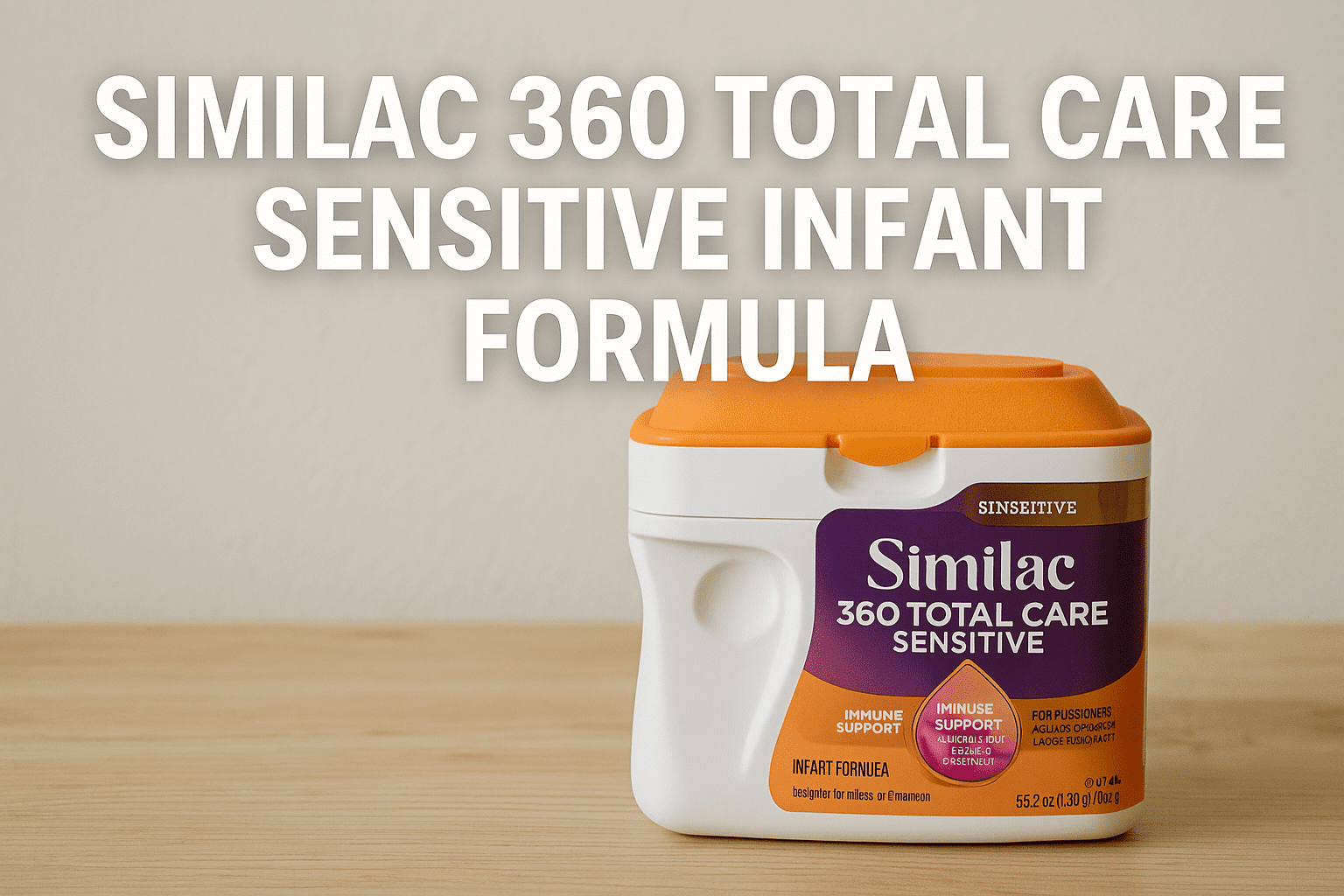

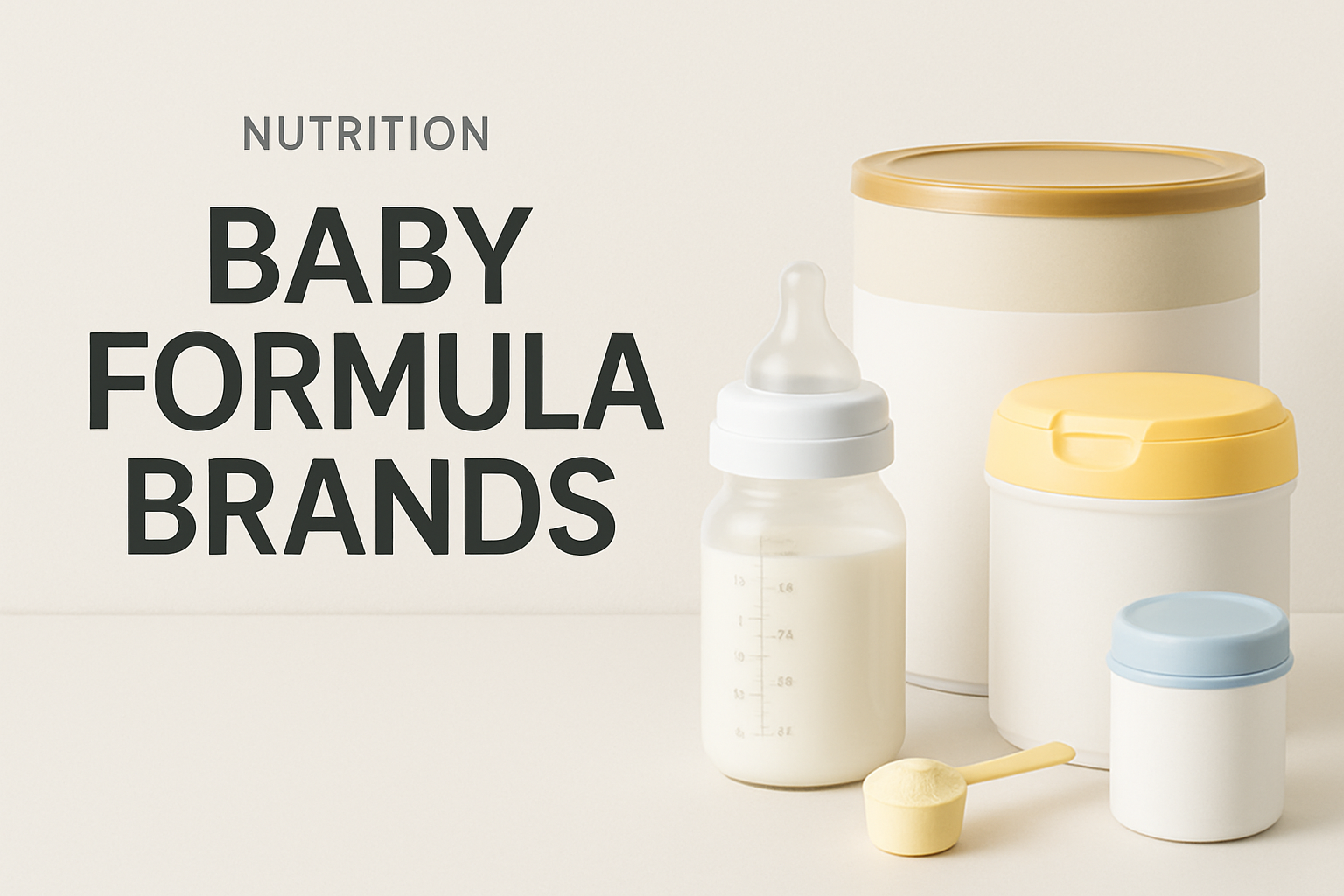

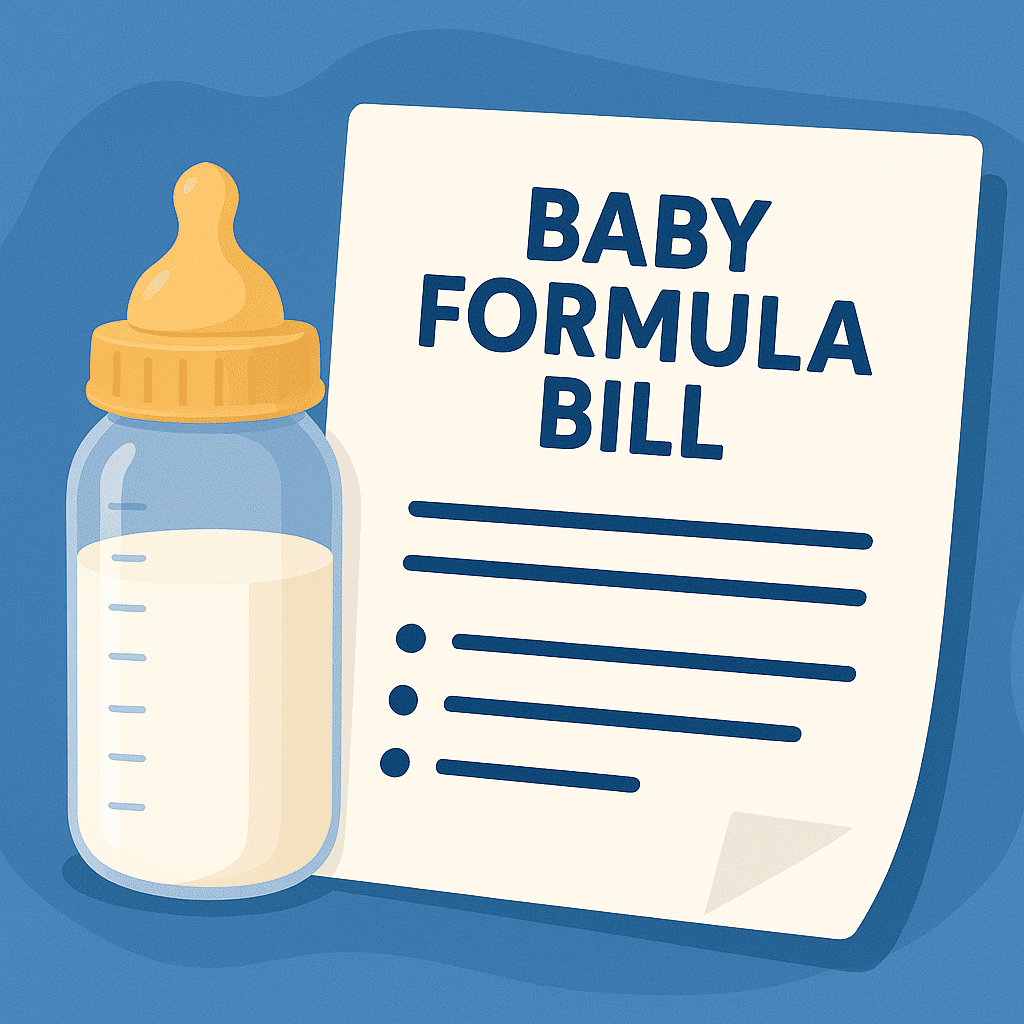

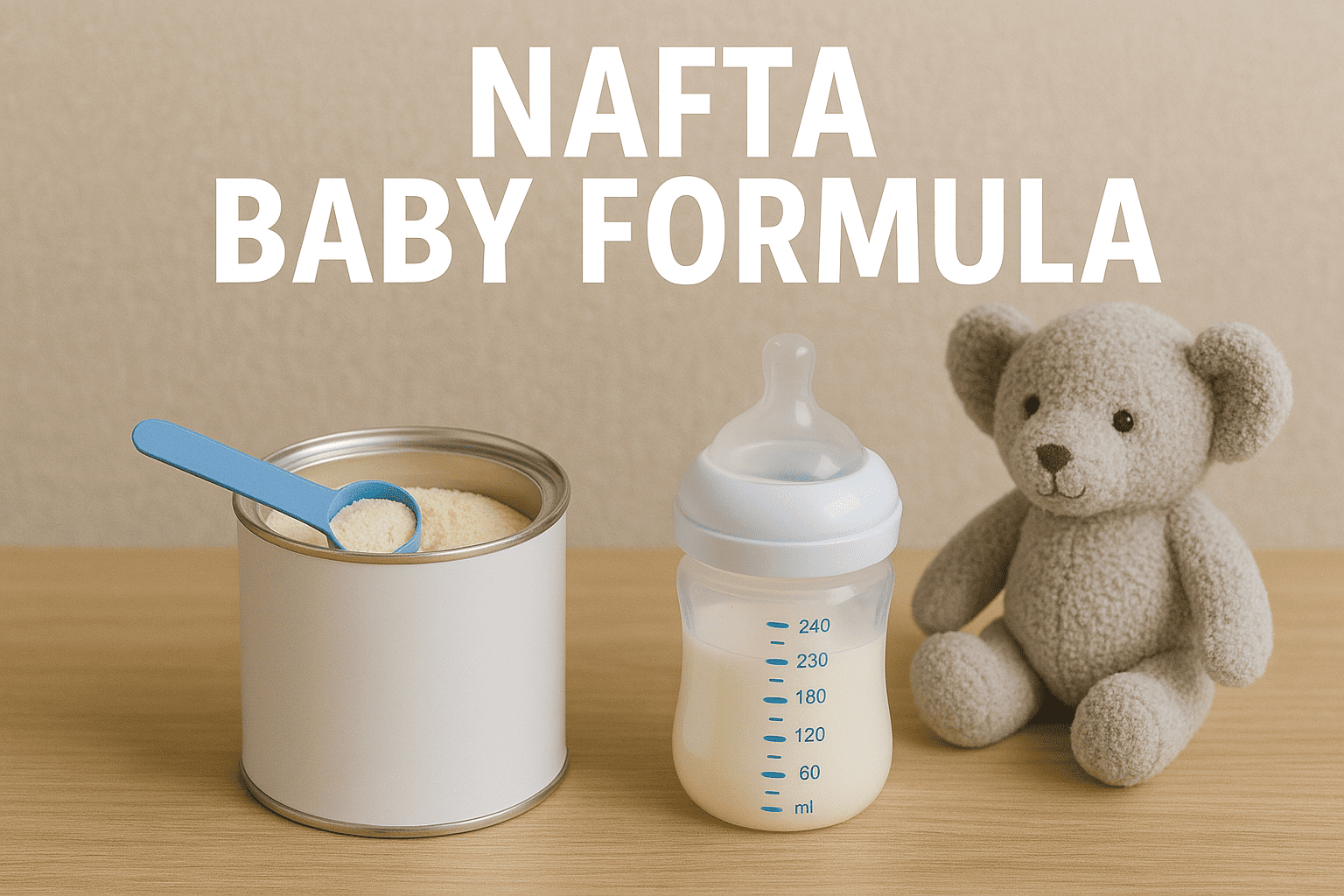
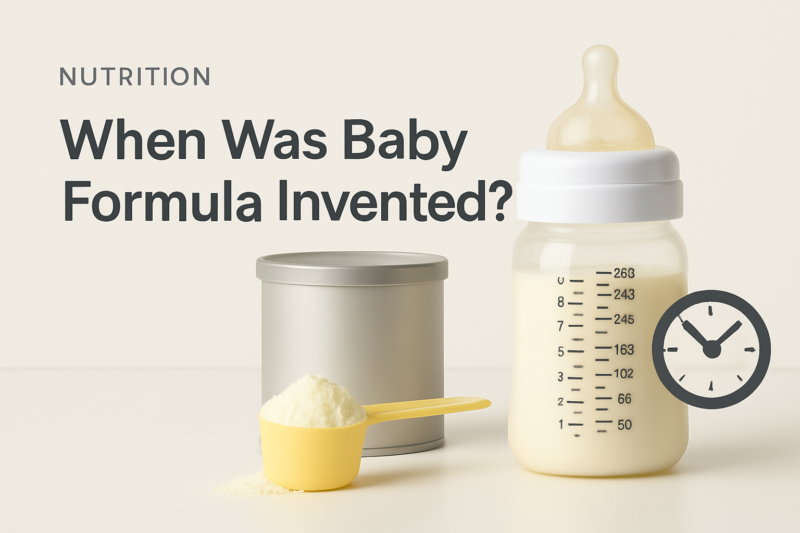
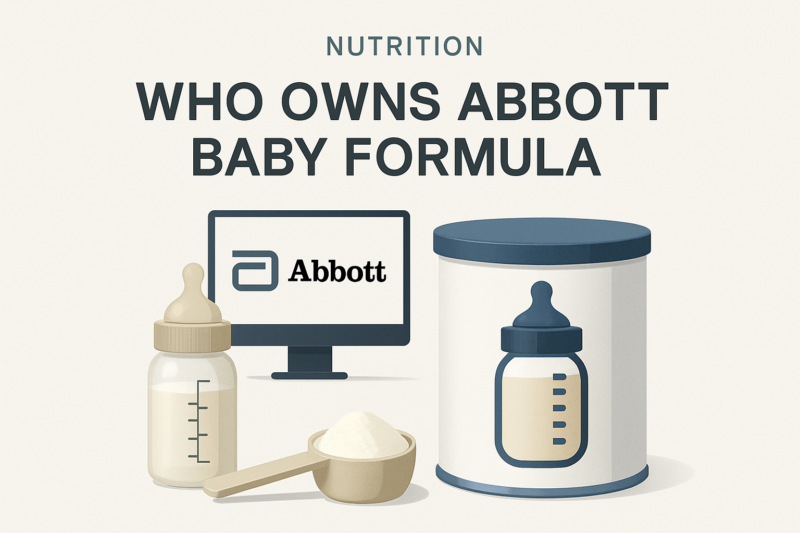


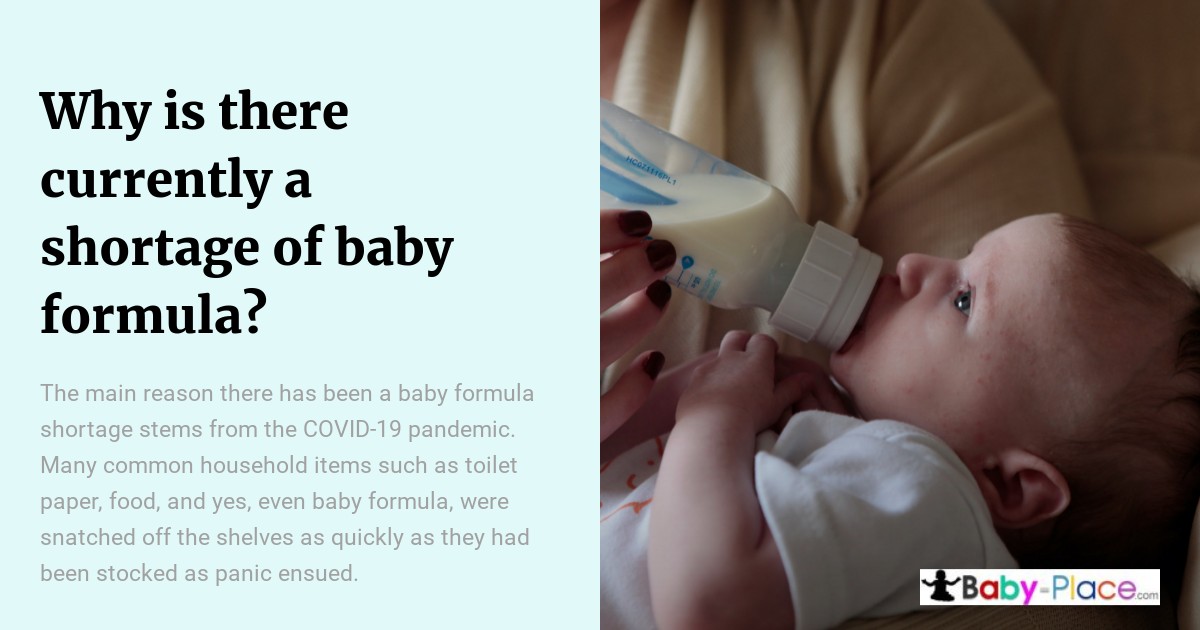

![[Recipe] Homemade Baby Formula Recipe](https://baby-place.com/wp-content/uploads/2025/04/homemade-formula-recipe-e1755526887889.png)
![[Recipe] Making baby formula at home](https://baby-place.com/wp-content/uploads/2022/12/baby-formula-recipe.jpg)